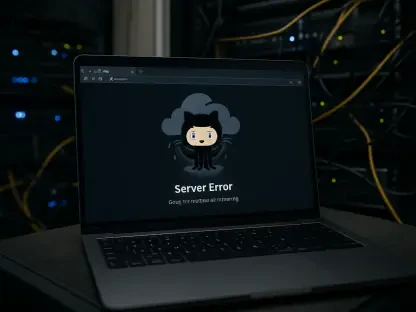Systemd, since its inception, has transformed the landscape of Linux init systems and taken center stage with its overarching efficiency and utility. The long-awaited release of systemd 258 is marked by significant updates, not just in terms of features but also in shaping future Linux ecosystems. This article compiles a range of perspectives from various industry experts and users on this groundbreaking release, delving into the multifaceted changes and their potential impacts.
Evolution and Impact of Systemd
Systemd has consistently evolved to become integral to the smooth operation of Linux systems, gaining widespread acceptance in the Linux community. Over the years, it has seamlessly orchestrated system processes to enhance efficiency and streamline administration. The update to systemd 258 is especially pivotal, with many experts suggesting it may redefine system management paradigms.
The new release offers transformative features poised to significantly influence the functionality and management of Linux systems. From additional layers of resource containment to improved process handling, users anticipate these enhancements will elevate both performance and security. Highlights include advanced capabilities in resource management and a modernized approach to container oversight, promising diverse benefits to Linux distributions.
Transformative Features Unveiled
Revolutionary Changes and Functional Enhancements
The introduction of systemd 258 has garnered attention for its forward-thinking features, prompting mixed reactions. Experts consider the introduction of verbose service startup and enhanced systemd-homed functionalities as breakthrough changes. These innovations promise improved debugging facilities and user management but also spark discussions about their complexity and learning curve.
Some developers express concern about potential conflicts arising from these updates, especially regarding traditional configurations. However, the consensus remains that these advancements signify a progressive step toward more robust and scalable Linux infrastructures.
Shifts in System Requirements and Compatibility
Another critical shift with systemd 258 is its compatibility requirements, which now necessitate a Linux kernel upgrade to version 5.4 and the removal of cgroups v1 support. This has stirred debates among system administrators and developers as they recalibrate systems to align with these dependencies. The heightened requirements underscore systemd’s directive to align with contemporary technological standards.
While some administrators view these changes as an optimization opportunity, others emphasize the risks of transition, particularly for older systems. This evolution commands a strategic adaptation, particularly in distributions aiming to leverage modern system capabilities while retaining backward compatibility.
Advanced Capabilities in Resource Management
The enhanced resource management capabilities within systemd 258 emerge as a topic of robust discussion. With the introduction of user-specific quotas and DDoS prevention, systemd gears up to handle resource allocation more dynamically. Many experts laud these measures for balancing system security with operational efficiency, potentially setting new Linux ecosystem standards.
These capabilities provide administrators with innovative tools for refined resource governance. Analysts predict that, over time, such features will become benchmarks in Linux management, driving broader adoption across various sectors reliant on Linux’s reliable performance.
Redefining User and Container Management
Systemd 258 introduces pivotal changes in user and container management, eliminating dependency on sub-UIDs and sub-GIDs. The Linux community is optimistic about this development, as it complements the trend of simplifying containerized environments. Experts argue these modifications provide a compelling edge over alternative approaches.
There is considerable anticipation about how this will impact containerized applications. The adjustments present a unique approach distinct from traditional methodologies, streamlining processes and reducing potential vulnerabilities intrinsic to user namespace management.
Strategic Adaptation and Utilization
Professionals in the Linux domain are encouraged to explore systemd 258’s diverse features to optimize system performance and enhance security measures. Developers and administrators are advised to integrate these updates into their infrastructure thoroughly yet judiciously, ensuring smooth transitions.
Industry veterans stress the importance of remaining informed and proactive in adopting these features to maximize the version’s full potential. By integrating innovative configurations and leveraging enhanced management tools, stakeholders can harness systemd 258’s robust capabilities effectively.
Anticipating the Future with Systemd
In retrospect, the release marked a milestone that has revolutionized Linux’s system infrastructure. By integrating modern system requirements and enhanced functionalities, systemd 258 charted a course toward future-proofing Linux systems. As the trajectory continues, experts anticipate further developments will build upon this foundational release.
Stakeholders striving to stay ahead are encouraged to engage with ongoing trends in system administration. Embracing emerging innovations, in line with systemd’s evolution, positions Linux practitioners to navigate future advancements confidently and efficiently. This sets the stage for continued progress and stability within the broader Linux ecosystem.









